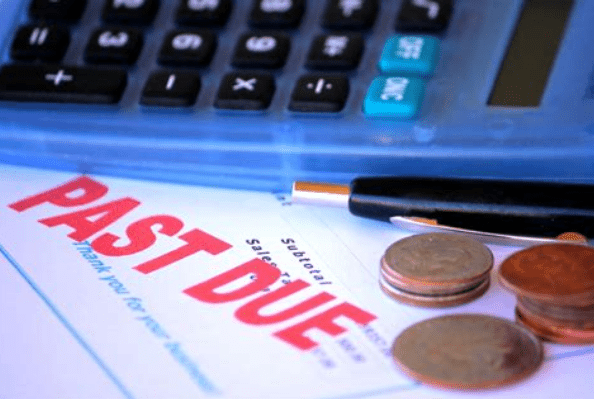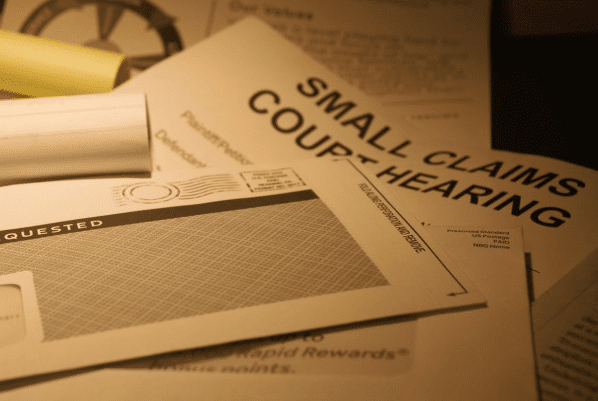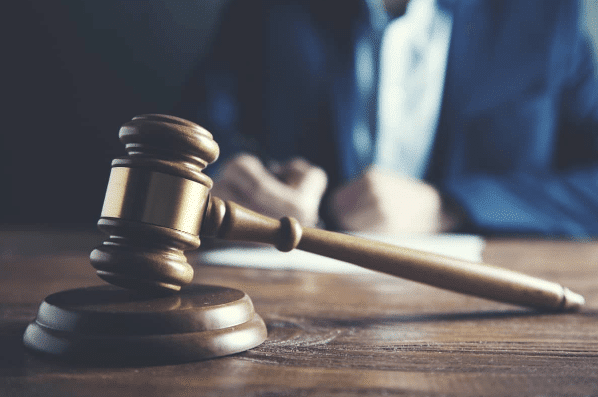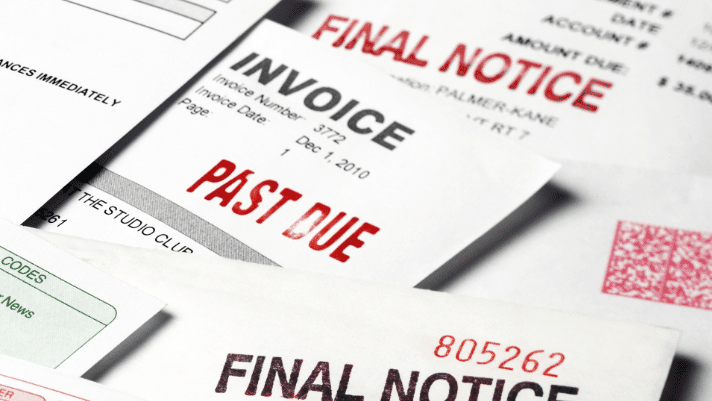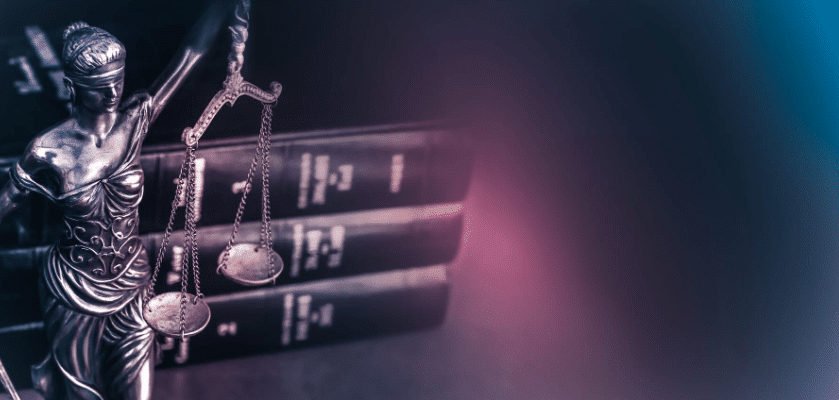Facing a debt collection lawsuit in South Dakota can be stressful, especially when you receive official Court Documents notifying you of the legal action. However, with ZumaZip, you can put an end to those intimidating Collection Calls and navigate the legal process with greater ease.
If you’re being sued by a debt collector in South Dakota, you’re not alone. Many individuals find themselves in similar situations, unsure of how to proceed. The first step is to respond to the summons appropriately, and ZumaZip can help you do just that.
Receiving Court Documents can be overwhelming, but ZumaZip can provide the support and guidance you need to respond effectively to the lawsuit. Don’t let the stress of being sued weigh you down—take action with ZumaZip and stop those Collection Calls today.
In South Dakota, any debt, whether credit card, utilities, or car loan debt, can be sent to a collection agency for recovery if you default on your monthly payments. These agencies will frequently call and send you debt collection letters, asking you to pay the amount owed. Such extreme debt collection tactics can be stressful if you do not know how to respond to a debt collection summons.
You have 30 days to respond to a debt collection summons in this midwestern state. Therefore, it is never a great idea to ignore this timeline because a default judgment can occur if you fail to beat the deadline. A default judgment means that the court can determine the validity of your debt, and the plaintiff will win the case without your presence in court.
Respond to debt collectors in 15 minutes with ZumaZip.
South Dakota answer to summons forms
So, you’ve received a debt collection letter or maybe a call from a collector, and it’s got you feeling a bit uneasy. No worries, we’ve got you covered with some steps to navigate this situation smoothly.
First off, let’s validate that debt. Get all the info you can about the collection agency—name, contact details—and then shoot them a request for a debt validation letter. This letter should lay out all the details: how much you owe, who you owe it to, and what to do if you think there’s been a mistake.
Once you’ve got that validation letter in hand, give it a good read. If you spot any discrepancies or if you genuinely don’t recognize the debt, it’s time to put pen to paper (or fingers to keyboard) and let the collector know. Ask them politely to stop bugging you about it.
But hey, if you do owe the debt, don’t panic. You’ve still got options. You can reach out to the collector and see if you can work out a payment plan that fits your budget. Whether it’s regular payments or a one-time lump sum, there’s usually some wiggle room for negotiation.
Oh, and one more thing to keep in mind: the Statute of Limitations. This little legal nugget sets a time limit on how long a debt collector has to sue you for payment. If your debt is getting close to that expiration date, it might be time to chat with a lawyer about your next move.
So there you have it—debt collection drama, handled like a pro. Keep calm, stay informed, and you’ll be on your way to resolving this situation in no time.
Don’t let collectors push you around. Protect your property with ZumaZip.
Filing fees for answer to debt collection summons in South Dakota
In South Dakota, filing a Debt Collection summons in circuit court comes with a $70 fee. However, if the debt being collected is $12,000 or less, it can be filed in a Small Claims Court, where fees vary based on the amount sought.
For cases seeking between $4,000 and $12,000, the filing fee ranges up to $35. It’s worth noting that small claims matters can’t be appealed to the Supreme Court or Circuit Court, but you do have the option to move them to Circuit Court.
In most Circuit Court cases, a private process server or county sheriff handles serving debt collection complaints and summons, with service fees typically ranging from $30 to $50. The court usually handles serving the Notice of Small Claims by mail.
Once a judgment is obtained, the court clerk will add a $35 sheriff’s execution fee and a $5 writ execution fee. A Writ of Execution, a judicial order to execute a judgment, is issued. The sheriff also charges a percentage of the total amount levied and paid to the creditor.
In South Dakota’s garnishment proceedings, the law requires the debt collector to receive a sum of $15 to reimburse the expenses they incurred while preparing the garnishment disclosure form. The debt collector can include this amount in the debt that the creditor is trying to recover from you.
File a response to a debt collection lawsuit fast with ZumaZip.
Steps to respond to a debt collection case in North Dakota
It’s best to respond to a summons as soon as you can. This is to prevent the court from ruling in favor of the plaintiff. Below are the steps you need to take when responding to a debt collection summons in South Dakota.
Answer each issue of the complaint
Answering the complaint can be stressful, but that should not be the case. You only need to read and understand the complaint then respond to the paragraphs with either of the following answers:
- Agree
- Disagree
- I don’t know
Assert affirmative defenses
The next step involves giving the court reasons why it should pass a judgment in your favor by explaining why you do not owe the plaintiff any debt.
Some relevant defenses to include are:
Identity theft: if you believe that you incurred the debt in question through impersonation, you can add identity theft to your affirmative defenses. To convince the court that your identity has been stolen, make sure you have the necessary documents, including police and credit card reports and affidavits of forgery, just in case the court requests them.
Amount of debt in dispute: This defense applies when the amount the debt collector is suing you for differs from the amount you believe you owe. There may be different reasons for the disparity in the debt amount, some of which include:
- Creditors’ failure to compute payments.
- Incorrect calculations on interest.
- Wrong dates on calculated amounts.
- Inclusion of other incorrect charges.
South Dakota Statute of Limitations: The statute of limitations on most debts in South Dakota is six years. This includes mortgage, credit card, and medical debt. If the Statute of Limitations on your debt has already expired, a debt collector cannot pursue legal action against you. However, the Statute of Limitations can be reactivated if you make any payment towards settling your debt.
Contract cancellation: You could raise this affirmative defense if you had a contract with the creditor. In that case, you’ll need to tell the court that the plaintiff did not implement the agreement that led to the debt.
Discharge of debt in bankruptcy: If there was a bankruptcy petition that previously included the debt you are answering summons for, the debt collector must discontinue the lawsuit or face another for the violation of a discharge.
Cleared debt: You can argue your defense on clearing the debt or making a partial payment towards settling the debt in question.
Lack of information: This defense is relevant if you were a co-signer to a loan or debt you’re being sued for but did not have enough information on your rights as a co-signer.
It is essential to note that there is no bonding requirement or special licensing required to practice debt collection in South Dakota. You cannot, therefore, argue your defense on the collector’s lack of license to collect a debt or the failure of the debt collector to allege licensure in the complaint as you would in other states.
Use the right affirmative defense with ZumaZip and win your case.
File the answer in court and serve the plaintiff
In South Dakota, if you do not have an attorney, you will need to file your answer in person or by mail. To do this, you need to mail a copy of your answer to the plaintiff’s attorney and another to the court, and then pay the court’s filing fee.
However, one of the easiest options to answer a debt collection summons in South Dakota is by using the services provided by ZumaZip. Given that debt collection laws are quite complicated, ZumaZip makes filing easy by doing it the right way.
Debt collection rules and regulations in South Dakota
South Dakota is among the few states that have fully adopted the federal regulations for debt collection as outlined by the Fair Debt Collection Practices Act (FDCPA) without any additions to their state law code. But this act does not dictate interest rates on consumer debts. South Dakota only allows a maximum of 15 percent on legal interest rates and 12 percent on judgment penalties.
Federal standards regulate debt collection practices in this state, with violations warranting penalties of up to $1000 and court fee payment. This means that there are laws that protect you as the consumer and govern the actions of debt collectors.
According to the FDCPA, a debt collector in South Dakota cannot:
- Contact you before 8.00 am or after 9.00 pm.
- Make contact with your friends or family except to inquire about your contact details.
- Contact anyone else to discuss your debt except you, your attorney, or your spouse.
- Contact you further if you have expressly stated in writing that they cease communicating with you.
Further, the law prohibits a debt collector from:
- Making false claims or statements regarding the name of their company, who they represent, or the amount you owe.
- Sending documents that appear legal or official when they are not.
- Threatening to garnish your wages, arrest you, seize your property or pursue legal action against you unless they intend to follow through and are legally permitted to do so.
- Harass you, including using abrasive language.
Don’t let debt collectors beat you with shady tactics. Respond with ZumaZip.
Understanding the garnishment of wages in South Dakota
In South Dakota, laws regarding garnishment of wages by debt collectors are more restrictive compared to federal laws. If garnishment is deemed necessary by the court, the state allows a maximum of 20 percent of disposable income to be garnished, whereas federal law permits up to 25 percent of non-exempt wages to be garnished.
When you receive a garnishment summons, the debt collector will serve you with a garnishment disclosure, similar to how you were served with the debt collection summons and complaint. As the judgment debtor, the collector is entitled to a 120-day lien on your income, giving them a right over your property or income until the debt is cleared.
During this time, you will hold onto the garnished income until the collector serves an order to release the funds. Once this happens, you must hand over the held funds to the creditor. The collector can then renew the lien on your wages for another 120 days after serving you with another garnishment disclosure form.
South Dakota law provides you with up to five days (if served in person) or eight days (if served by mail) to claim exceptions to the garnishment. Failure to claim any exceptions within this timeframe may result in the court considering it a waiver of additional exceptions. If you fail to respond to a garnishment summons within 30 days, the collector may obtain a supplemental judgment against you.
Protect your wages with ZumaZip.
Understanding the statute of limitations in South Dakota
| South Dakota Statute of Limitations on Debt | |
| Debt Type | Deadline in Years |
| Credit Card | 6 |
| Medical | 6 |
| Mortgage | 6 |
| Auto Loan | 6 |
| State Tax | 3 |
Source: Findlaw | |
The Statute of Limitations is the timeframe within which a creditor and debt collector can pursue legal action against you to collect their debt. In South Dakota, there are different Statutes of Limitations on various debts. As a result, knowing the Statute of Limitations that applies to your debt can significantly impact your debt summons.
Suppose the Statute of Limitations on your debt has already expired. In that case, the debt collector can still contact you to pursue their debt but cannot file a lawsuit against you because the timeframe for legal action has already passed.
However, it is essential to note that the expiry of the Statute of Limitations on your debt does not automatically cancel the debt; the collection accounts remain in your credit report for up to seven years from the date of your first defaulted payment.
If a debt collector keeps contacting you regarding a time-barred debt, you can request in writing that they stop contacting you.
Make the right defense the right way with ZumaZip.
Tips to tackle debt in South Dakota
Rather than work with expensive lenders for loans that will only worsen your debt problems, you can consider one or more of the strategies listed below to pay off your debt.
Consolidating your debt: Consolidating multiple debts into one loan that requires a single monthly payment can be a great strategy for meeting your debt obligations. However, it is imperative to go over the interest rates of this new loan with your lender, as debt consolidation can sometimes lead to higher interests and more extended repayment periods.
Debt Refinancing: Student loan, mortgage, and auto-loan refinancing are common methods to acquire better loan terms and lower interest rates on debts. Similar to consolidation, refinancing involves negotiating for a new loan to service an already existing debt.
In refinancing, however, payments are not necessarily consolidated into a singular monthly payment. If you have a good credit score, it should be easy to get approval for a new loan with better repayment terms.
Balance transfer card: You can use a balance transfer to pay off your debt faster and at a lower rate. Balance transfers involve transferring an existing debt to a new credit card with preferable terms.
Respond to debt collectors with ZumaZip and win in court.
Legal aid organizations in South Dakota
If you are facing a dire debt situation, reaching out to legal aid organizations and debt relief programs within South Dakota is a great place to start.
You may contact these South Dakota legal aid organizations:
- Freedomdebtrelief; this organization has a debt relief and consolidation program available to South Dakota residents. It provided debt consolidation services.
- lsssd.org; this organization has chapters in South Dakota and other states. You can contact them for individual budget counseling, debt management, and debt education services.
- Moneyfit; you can contact this organization for debt relief services, emphasizing credit card debt and other unsecured debts.
While avoiding debt is not always possible, as a South Dakota resident, you don’t have to crush under the weight of unmanageable debt. If you follow the steps detailed in this article, you will navigate your debt collection summons successfully.
The most important thing is to take advantage of available resources to prevent the debt situation from getting worse.
What is ZumaZip?
ZumaZip is a convenient solution designed to streamline your response to a debt collection lawsuit. Here’s a breakdown of what you can expect when you use ZumaZip:
Firstly, you’ll access our user-friendly web application, which guides you through the process step by step. You’ll be prompted to answer a series of questions related to your specific situation. Once you’ve completed the questionnaire, you have the option to either print out the finalized forms and mail them to the appropriate courts yourself, or you can opt to utilize ZumaZip’s services to file them on your behalf. Additionally, if you choose this option, an attorney will review your document for added peace of mind.
If you’re seeking guidance on how to effectively respond to a debt collection lawsuit, ZumaZip can provide the assistance you need. Feel free to explore our FAQs for more information on what ZumaZip has to offer.
What if I haven’t been sued yet?
If you’ve only received a collections notice, but not a lawsuit, the best way to respond is with a Debt Validation Letter. When a debt collector contacts you in any way, whether it’s by phone or mail, you can respond by formally requesting a debt validation with a Debt Validation Letter . This letter notifies the collector that you dispute the debt and forces them to provide proof you owe the debt. They can’t call you or continue collecting until they provide validation of the debt. This flowchart shows how you can use a Debt Validation Letter to win.
Get started with a Debt Validation Letter here.
How to Answer a Summons for debt collection in all 50 states
Here’s a list of guides on how to respond to a debt collection lawsuit in each state:
- Alabama
- Alaska
- Arizona
- Arkansas
- California
- Colorado
- Connecticut
- Delaware
- Florida
- Georgia
- Hawaii
- Idaho
- Illinois
- Indiana
- Iowa
- Kansas
- Kentucky
- Louisiana
- Maine
- Maryland
- Massachusetts
- Michigan
- Minnesota
- Mississippi
- Missouri
- Montana
- Nebraska
- Nevada
- New Hampshire
- New Jersey
- New Mexico
- New York
- North Carolina
- North Dakota
- Ohio
- Oklahoma
- Oregon
- Pennsylvania
- Rhode Island
- South Carolina
- South Dakota
- Tennessee
- Texas
- Utah
- Vermont; Vermont (Small Claims court)
- Virginia
- Washington
- West Virginia
- Wisconsin
- Wyoming
Guides on how to beat every debt collector
Hey there! Facing off against a debt collector can feel like a daunting challenge, but fear not! We’re here to help you navigate through it all with our handy guides designed to assist you in beating every debt collector you encounter. Whether you’re facing a new lawsuit or dealing with a persistent collector, we’ve got your back. Stay positive, stay informed, and let’s tackle this together!
- Absolute Resolutions Investments LLC
- Accredited Collection Services
- Alliance One
- Amcol Clmbia
- American Recovery Service
- Asset Acceptance LLC
- Asset Recovery Solutions
- Associated Credit Services
- Autovest LLC
- Cach LLC
- Cavalry SPV I LLC
- Cerastes LLC
- Colinfobur
- Covington Credit
- Crown Asset Management
- CTC Debt Collector
- Cypress Financial Recoveries
- Delanor Kemper & Associates
- Eagle Loan of Ohio
- Educap
- Estate Information Services
- FIA Card Services
- Forster & Garbus
- Freshview Solutions
- Fulton Friedman & Gullace LLP
- Harvest Credit Management
- Howard Lee Schiff
- Hudson & Keyse LLC
- Integras Capital Recovery LLC
- Javitch Block
- Jefferson Capital Systems LLC
- LVNV Funding
- Mannbracken
- Mariner Finance
- Medicredit
- Michael J Adams PC
- Michael J Scott
- Midland Funding LLC
- Mullooly, Jeffrey, Rooney & Flynn
- Mountain Land Collections
- MRS Associates
- National Collegiate Trust
- Nationstar Foreclosure
- Northstar Capital Acquisition
- NCEP LLC
- NRC Collection Agency
- OneMain Financial
- Palisades Collection LLC
- Pallida LLC
- Paragon Revenue Group
- Pinnacle Collections Agency
- PMAB LLC
- Portfolio Recovery Associates
- Provest Law
- PYOD LLC
- Reunion Student Loan Finance Corporation
- Revenue Group
- Regents and Associates
- RSIEH
- Salander Enterprises LLC
- Second Round Sub LLC
- Security Credit Services
- Sherman Financial Group
- Suttell and Hammer
- T-Mobile
- Transworld Systems
- Tulsa Teachers Credit Union
- UCB Collection
- Velo Law Office
- Velocity Investments
- Waypoint Resource Group
- Weinberg and Associates
- Wolpoff & Abramson
Settle your medical debt
Having a health challenge is stressful, but dealing medical debt on top of it is overwhelming. Here are some resources on how to manage medical debt.
- Am I Responsible for My Spouse’s Medical Debt?
- Do I Need a Lawyer for Medical Bills?
- Do I Need a Lawyer to Fight Medical Bill Debt?
- Does Bankruptcy Clear Medical Debt?
- How Much Do Collection Agencies Pay for Medical Debt?
- How to Find Medical Debt Forgiveness Programs
- Is There a Statute of Limitations on Medical Bills?
- Medical Debt Statute of Limitations by State
- Summoned to Court for Medical Bills — What Do I Do?
- Summoned to Court for Medical Bills? What to Do Next
Stop calls from Debt Collectors
Do you keep getting calls from an unknown number, only to realize that it’s a debt collector on the other line? If you’ve been called by any of the following numbers, chances are you have collectors coming after you, and we’ll tell you how to stop them.


























